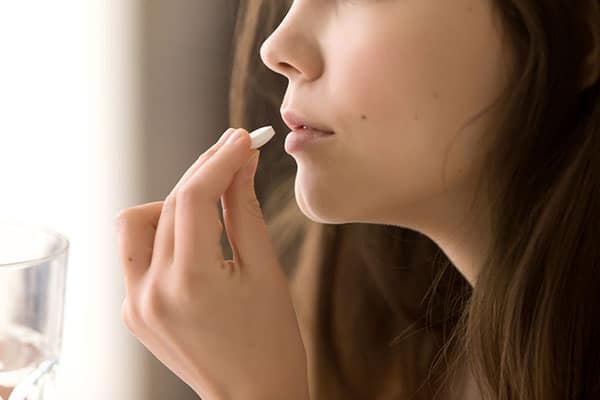It’s no wonder Big Pharma loves antidepressants.
About 13% of Americans over the age of 12 take them, according to the Centers for Disease Control and Prevention.
These medications include Prozac (fluoxetine), Zoloft (sertraline), Celexa (citalopram), Lexapro (escitalpram), and many others.
Antidepressants can be very difficult to quit. Withdrawal is similar to that of addictive drugs. A quarter of the people on the medications have taken them for at least 10 years.i
Now that’s a strong customer base!
Antidepressants bring in more than $14 billion in drug company revenue every year.
The Big Antidepressant Lie
But even though so many people take these drugs, they don’t actually work for most patients. That’s the finding of a study that concluded there’s no evidence that antidepressants work any better than a placebo.ii
The research was published in the journal BMJ Open. It was a response to a large review in the journal Lancet that is widely used to support antidepressant use. It looked at 522 trials that included 116,477 participants. It found that antidepressants do effectively treat depression.iii
The review got big play in the mainstream media, who reported it as proof positive that doctors are justified in freely prescribing antidepressants.
But the follow-up study, led by Dr. Klaus Monkholm, found major problems in the Lancet study data.
Dr. Monkholm and his colleagues point out that the best quality studies use “blinded” participants. That means they don’t know whether they’re getting a placebo. But because antidepressants have well-known side effects, study subjects can often figure out if they are taking the drugs.
So the studies cannot be truly blinded. The Lancet study didn’t control for that problem.
Dr. Monkholm’s team showed other defects in the Lancet study:
- It fell prey to “publication bias.” Studies of antidepressants are usually funded by drug manufacturers. The research that shows positive results gets published…and studies with negative results are not submitted for publication. That doesn’t mean they are any less valid. But drug companies won’t allow them to see the light of day.
- The effects of the drugs “may not be clinically significant.” In the studies that found antidepressants did work, the effects were so small that many patients would barely notice the difference, if they did at all.
- There was a high drop-out rate for participants. That means side effects often overshadowed any possible benefits.
The bottom line?
Dr. Monkholm said the evidence “doesn’t support definitive conclusions” that antidepressants are effective. It doesn’t even establish that they’re “more efficacious than a placebo.”iv
4 Natural Solutions for Depression
Antidepressants can be lifesavers for people with severe, suicidal depression. But the vast majority of patients take them for less serious conditions. For these people, natural mood boosters may be safer and more effective:
St. John’s wort. This herb is proven to treat depression. It naturally balances the brain’s levels of the neurotransmitters norepinephrine, serotonin, and dopamine. Take it twice a day for a total dosage of 900 to 1,800 mg a day.
Saffron extract. Studies have found extracts of this cooking spice work better than the drugs Prozac (fluoxetine) and Tofranil (imipramine). It is high in carotenoids and B vitamins. These nutrients enhance mood. Take 15 mg twice a day.
5-Hydroxytrptophan (5-HTP). This amino acid works well with depression that is combined with anxiety. It boosts the body’s natural production of serotonin. It has also been found effective against insomnia. Suggested dosages are 100-200 mg taken twice per day.
SAMe. This naturally occurring amino acid-based chemical facilitates healthy nerve connections and boosts neurotransmitters. Some holistic doctors recommend it for older patients. This is because it has beneficial effects on arthritis and joint pain as well. Dosages typically start at 200 mg twice daily.
Editor’s Note: Unlike much of the mainstream media, we don’t accept advertising from Big Pharma. That’s why you can count on us for unbiased medical information. Our only motivation is your good health.
Read our newsletter, Independent Healing. Each month it brings you important health news you won’t find anywhere else. Go HERE to find out more.
Related Articles
Antidepressants Raise Your Risk of Early Death by 33%
You’re Better Off Taking a Sugar Pill Than an Antidepressant

